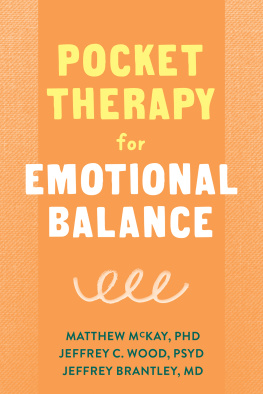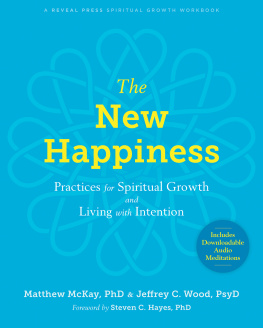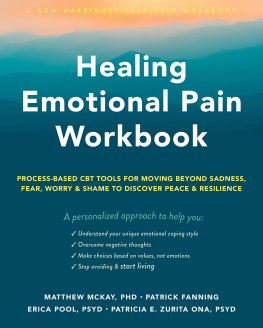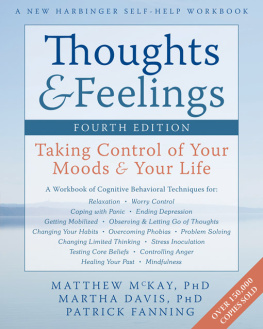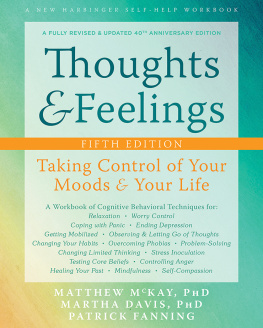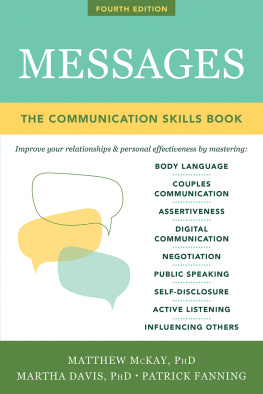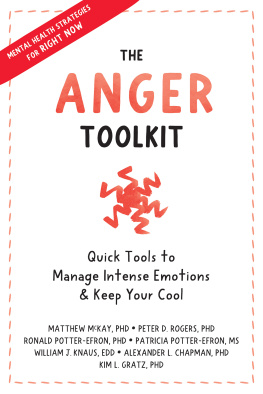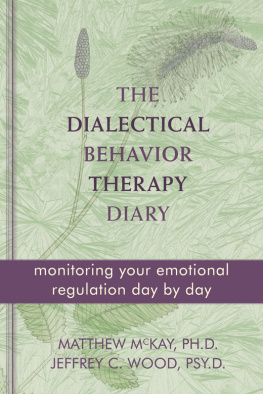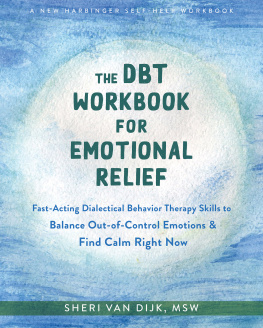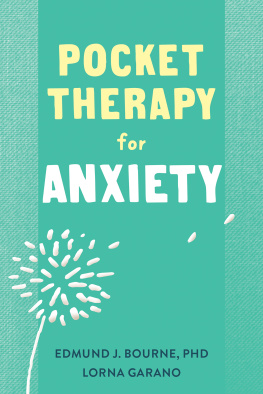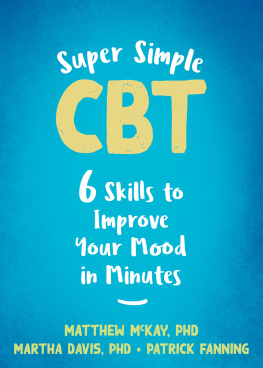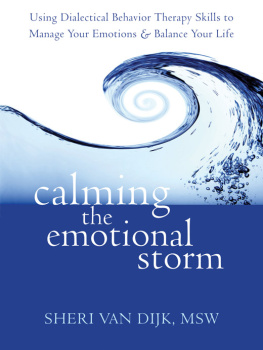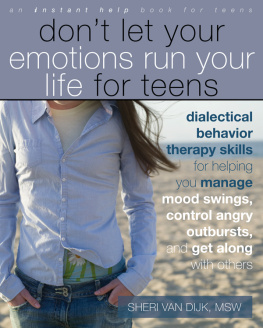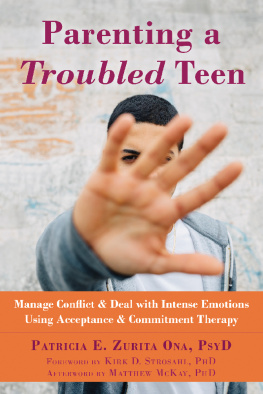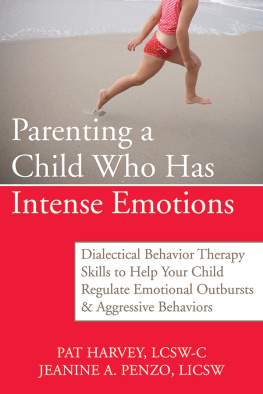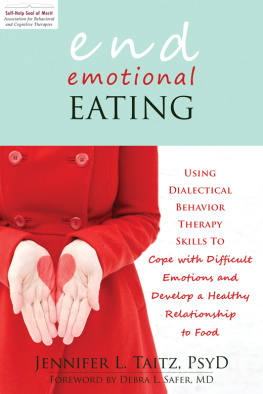The authors of Pocket Therapy for Emotional Balance have created a handy, readable guide that brings together simple yet powerful psychological tools for achieving and maintaining emotional well-being. Readers who are willing to seriously and consistently practice as directed will learn effective psychological coping skills, and will likely experience the kind of improved emotional resilience that often results from face-to-face therapy with a skilled dialectical behavior therapy (DBT) provider.
Britt H . Rathbone , MSSW , LCSW - C , expert adolescent therapist, trainer, and coauthor of What Works with Teens , Dialectical Behavior Therapy for At - Risk Adolescents , and Parenting a Teen Who Has Intense Emotions
This petite book easily fits in your pocket or purse, and is designed as a quick resource for those struggling with overwhelming distress and emotions. Practical skills are explained in twelve easy-to-read chapters, each with a handy explore section to facilitate bringing skills into everyday life. A great go-to support that you can carry with you at all times.
Thomas R . Lynch , PhD , FBPsS , professor emeritus of clinical psychology in the school of psychology at the University of Southampton, and author of Radically Open Dialectical Behavior Therapy and The Skills Training Manual for Radically Open Dialectical Behavior Therapy
Pocket Therapy for Emotional Balance is a little gem. McKay, Wood, and Brantley have distilled some of the most potent skills from DBT in terms so clear and concise that anyone, including teenagers, can grasp how to use them. If you struggle with painful or out-of-control emotions, put this little book in your survival kit, or indeed, in your pocket, and remind yourself of how to stay in balance.
Cedar R . Koons , LCSW , DBT consultant and mindfulness teacher, and author of The Mindfulness Solution for Intense Emotions
As a fellow DBT therapist, author, and trainer, I am always on the lookout for simple, practical, and effective ways of making DBT skills usable for the lay reader. In this resource, you will find just that! I was especially impressed by the elegant simplicity with which the authors presented the difficult topics of radical acceptance, wise mind, and self-compassion, all while providing simple exercises to convert theory into immediate practice.
Kirby Reutter , PhD , bilingual clinical psychologist with Department of Homeland Security, and author of The Dialectical Behavior Therapy Skills Workbook for PTSD
Contents
Publishers Note
This publication is designed to provide accurate and authoritative information in regard to the subject matter covered. It is sold with the understanding that the publisher is not engaged in rendering psychological, financial, legal, or other professional services.
Distributed in Canada by Raincoast Books
Copyright 2020 by Matthew McKay, Jeffrey C. Wood, and Jeffrey Brantley
New Harbinger Publications, Inc.
5674 Shattuck Avenue
Oakland, CA 94609
www.newharbinger.com
Cover design by Sara Christian; Acquired by Elizabeth Hollis Hansen; Edited by Marisa Sols; Text design by Michele Waters-Kermes and Amy Shoup
All Rights Reserved
Printed in the United States of America
Library of Congress Cataloging-in-Publication Data on file
Introduction
In all of our lives, we have to cope with distress and pain whether physical, like a beesting or a broken arm, or emotional, like sadness or anger. Both kinds of pain are often unavoidable and unpredictable. The best any of us can do is to use the coping skills we have and hope they work.
But some individuals feel emotional and physical pain more intensely and more frequently than do other people. Their distress comes on more quickly and feels like an overwhelming tidal wave. Often, these situations feel like theyll never end, and the people experiencing them dont know how to cope with the severity of their pain. For the purposes of this book, well call this problem overwhelming emotions. (But remember, emotional and physical pain often occur together.)
If you struggle with overwhelming emotions, it can seem like the dial is turned to maximum on what you feel. When you get angry or sad or scared, the emotion may show up as a big, powerful wave that sweeps you off your feet.
And when that happens, it can make you afraid to have feelings.
The trouble with that is, the more you try to put a lid on your emotions, the more overwhelming they can get. Trying to stop the feelings doesnt work. Giving in to the feelingscauses problems in your relationships and makes life feel out of control.
What does work is a set of tools called emotion regulation skills. Those skills are what youll learn in this guide. Many thousands of people whove struggled with strong emotions have used emotion regulation skills to find whats called emotional efficacy the ability to have real, full emotions (even strong ones) without them running the show. Emotion regulation skills can change livesincluding yours.
Emotions Are Information
Emotions are an essential part of being humanthey are part of how we survive and function. Basically, emotions are signals within your body that tell you whats happening. When something pleasurable is happening to you, you feel good (joy, pride, satisfaction); when something distressing is happening to you, you feel bad (shame, fear, sadness).
We experience emotions in waves or stages of primary and secondary emotionsand knowing this is key to learning to balance our emotions.
Your initial emotional reaction to what is happening to you is a wave of primary emotions. These are strong feelings about whats happening that come on quickly without any thought interference. For example, if you win a contest, you might feel surprised. When someone you care about dies, you feel sad. You dont need to think about the emotion in these cases, it just comes.
Secondary emotions are reactions to your primary emotions. For example, Erik yelled at his sister because she did something that made him feel angry (primary emotion). Later he felt guilty (secondary emotion) about the things he said when he was so angry with her.
Its possible to respond to a single primary emotion with multiple secondary emotions. For example, Shauna became anxious when she was asked to make a future presentation at work. As the day drew closer, she became depressed as she thought about how anxious she was getting, and then she started to feel ashamed because she couldnt make a simple presentation. Then, the day after the presentation, she felt guilty and ashamed that she had made such a big deal about it in the first place.
As you might imagine, a primary emotional reaction to a situation can set off a chain reaction of distressing secondary emotions that cause you much more pain than your original emotion does. This is that flood of feelings that swamps you. If youve been dealing with overwhelming emotions for a long time, you might feel frustrated and hopeless about controlling such emotional reactions.
But though it can be difficult to control your primary emotional reaction, you can learn to cope with it. And secondary emotional responses are even easier to learn to control. In this book, youll build the skills that will let you manage those secondary responses. Later, when you have grown comfortable using these skills, especially the mindfulness skills, you may also gain some control over your primary emotional responses.
Building Emotional Health
Learning how to recognize your emotions and their effect on your life is the first step to controlling your emotional reactions. Very often, people spend their lives paying little attention to how they feel. As a result, there are a lot of important things happening inside them that they know little about.

